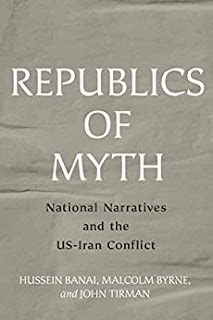A long-time expert in counter-terrorism and global Islamic threats like ISIS, Iraqi-born US-based Israeli Rita Katz rightly evaluates how loose is the legal and intelligence counter-reaction to internal far right threats. Written shortly after the pandemic lockdown, where all over the world, conspiracy theories were melted into nationalist rhetorics not amended by state actors, Saints and Soldiers. Inside Internet-Age Terrorism, from Syria to the Capitol Siege is an eye opening account of why and how the far right threats increased in the last years, unamended by state actors.
Someone who studied the ISIS and Islamist rhetorics for a long time, may figure out the common pattern by the far right, especially the anti-establishment and misogynistic take, anti-Semitism and the desire the disturb the everyday activities of state institutions. However, although the online activities of ISIS and its near of kin are relatively well documented and publicly denounced, worries are about the ways in which the far right is taking over the public discourse and its freedom to use and abuse online networks and open online resources.
The rhetorics are similar and they may need each other. When they are not just teenagers operating far right networks from the comfort of their computer in far away countries, individuals involved in far right activities of all kinds may know the state and may actually benefit of the support of state actors and individuals part of the system. See, for instance, the colourful list of people who were part of the plan to overthrwo the German government recently.
This book, written with the feedback of someone who dedicated her life to dismantle the anti-democratic threats, no matter where they are coming from, is a very useful material aiming at explaining the current mindsets as well as the sources of discontent. State institutions, scholars and practitioners, be aware!
Rating: 5 stars

